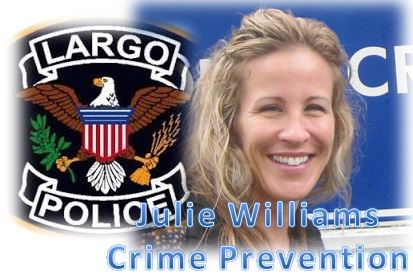Gun ownership is a controversial, highly discussed topic. What few people realize is the high number of seniors who own guns and the growing problem of senior gun safety for elders with dementia and diminished mental and physical capacity.
Senior gun safety is one of the trickiest issues our team has come across when working with elders and their families. Although driving safety and falls are probably the top two senior safety issues we encounter, elderly gun safety has come up in a number of cases and there are far too few resources/discussions about it. As shared in a Journal of American Geriatrics Society article*, “Whereas there are well-accepted guidelines for the assessment and counseling of older drivers, there is little to help guide clinicians in their discussions with older gun owners”.
One of the advantages we have in helping families at Aging Wisely and EasyLiving is a great resource network to access knowledge on all types of topics. We were fortunate to welcome Julie Williams from the Largo Police Department to provide continuing education for our eldercare team about senior gun safety. Julie has been with the Largo Police Department 12 years as a member of their Crime Prevention and TACH/SWAT Teams.
Senior Gun Safety Training by Julie Williams, Largo Police Department
Julie started with an overview of general gun safety and firearm information. She talked about the different types of firearms and the importance of safe storage and handling of both guns and ammunition.
She then shared the complex laws about gun safety and firearms. Gun ownership is strongly protected and there are federal and state laws governing firearms. These are covered under U.S. Code U.S.C. Chapter 44 Firearms and Florida Statute 790 Weapons and Firearms. There’s no upper age limit for owning a gun and the law does not routinely address diminished capacity in a person who already owns a firearm. Generally, someone can have a gun at home with no requirement for safe keeping (and can take them many places with them as well). Police can hold a gun temporarily for safe keeping, but this is only a short-term option (they can also advise on safe handling and keeping). Most care facilities have regulations about guns, though they may not be enforceable without the power of the law behind them.
Of course, there are specific issues that apply to aging and homebound clients. Julie discussed in-home care situations involving a gun issue and specific senior gun safety concerns. We talked about a number of cases we have dealt with and our experiences contacting the non-emergency police contacts. Due to the complexities of the law and limitations on police, families and professionals may need to be creative with solutions. The Record of Firearm Transfer form can be used when a client is willing to transfer a gun, for example to a family member.
Care planning can be done to incorporate gun safety and lawyers can even draw up a gun trust (a competent person can execute this, along with other estate planning documents, making the transfer of guns easier. The more proactively we (family and professionals) can address gun safety with seniors, the better. The issues may become more difficult and dangerous over time, especially for someone with dementia.
It is important to evaluate continued client and caregiver safety in relation to gun ownership. This ongoing assessment includes issues such as cognitive status, mental health, and physical abilities. In our discussions with the client, family and allied professionals, we consider the client’s wishes (and why he/she wants the gun–interestingly, nearly a fifth of all guns in the home are not intentionally purchased, but have been given to or inherited by their owners) and others who are coming into the home (providers may have policies about sending employees or volunteers into the home when a gun is present). Julie advised us on alternative safety measures a client might take if their concern is home safety (noise-making devices, pepper spray, securing the home).
One of the big takeaways from our discussions is that this issue needs to be addressed more holistically within communities. Gun issues are controversial generally, and gun rights limit what can be done in these situations. However, as our population ages we’ll need to work together to try to determine more comprehensive gun safety solutions.
What can you do about senior gun safety for your aging parent?
If you’re concerned about an aging parent’s senior gun safety, give us a call at 727-447-5845 or contact our eldercare professionals online (we offer nationwide consultations!). You may also want to check out Elderly Gun Owners and Home Safety Tips. Look for a future post with the Five Things You Need to Do When Your Aging Parent Owns a Gun (you can refresh your browser to initiate our signup box again, if you haven’t signed up for our newsletter yet).

 Popular Downloads
Popular Downloads


 Get Our Newsletter!
Get Our Newsletter! Mission Statement
Mission Statement

